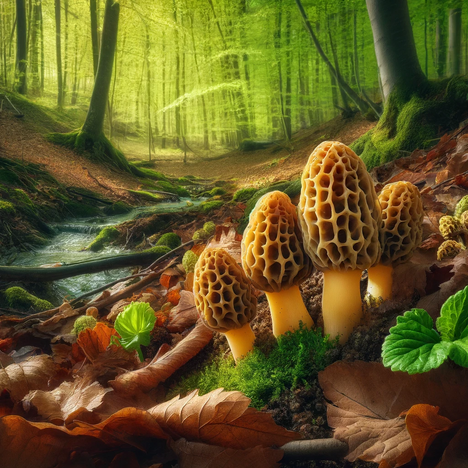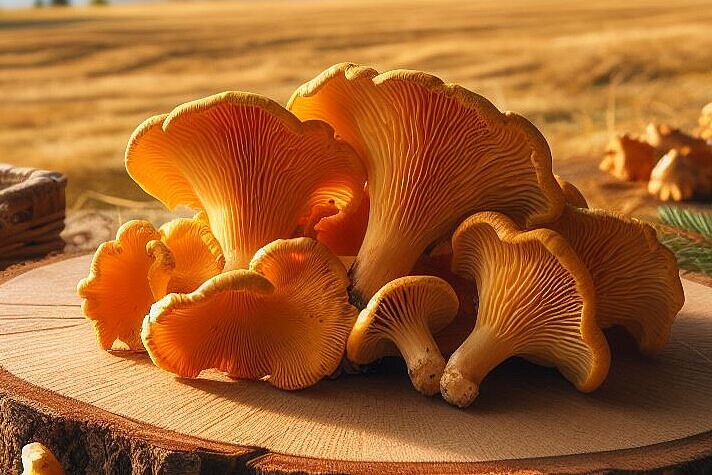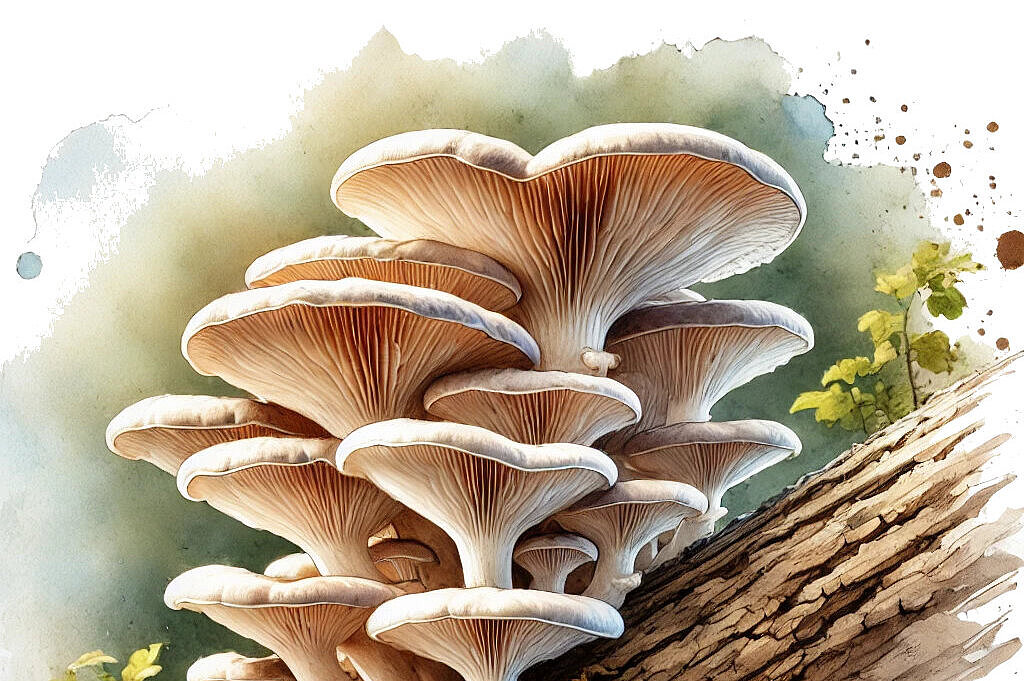Morels

Morels, those rare and prized mushrooms that sprout in forests and meadows in spring, are highly prized by gourmets. But while they are a delicacy on the human menu, the question arises as to how they affect the health of our dogs. In this article, we take a closer look at morels, shed light on what they are and discuss the possible advantages and disadvantages of their use in dog nutrition.
What are morels?
Morels belong to the tubular mushroom family and are known for their distinctive textured cap, which is reminiscent of a beehive. They grow mainly in temperate latitudes and are particularly common in spring after the last frost. Their earthy flavor and meaty texture make them very popular in the kitchen. Morels must be cooked thoroughly before eating as they contain toxic substances when raw.
Potential benefits of morels for dogs
Nutritional content
Morels contain vitamins and minerals that can also be beneficial for dogs. These include B-group vitamins, which support the nervous system, and antioxidants, which can protect cells from damage.
Protein supplement
As mushrooms, morels also contain a certain amount of vegetable protein, which can be a supplement to your dog's daily protein supply.
Risks and disadvantages of morels for dogs
Toxic substances
When raw, morels contain hydrazines, which are toxic and are only rendered harmless by thorough cooking. Even cooked morels may be difficult for some dogs to digest or cause allergic reactions.
Digestive problems
Mushrooms in general can cause gastrointestinal problems in dogs, including diarrhea and vomiting. The complex composition of mushrooms makes them difficult for some dogs' digestive systems to digest.
Allergies and intolerances
As with all foods, there is a risk of allergies or intolerances with morels. If there are any signs of discomfort after eating them, you should refrain from feeding them any further.
Risk of confusion
Another risk is the possibility of confusion with poisonous mushrooms. Many mushroom species are difficult for laypeople to identify and the risk of picking a poisonous mushroom is high.
A questionable delicacy for dogs
Although morels are a delicious ingredient for humans, their suitability for dogs should be viewed with caution. The potential health risks, particularly toxicity when raw and the possibility of digestive problems, make them a less than ideal choice for your dog's diet. If you still want to offer mushrooms to your four-legged friend, it is advisable to do so in very small quantities, make sure they are thoroughly cooked, and watch your dog's reaction carefully. If in doubt, it is better to play it safe and avoid feeding morels or other mushrooms. A balanced diet that is specifically tailored to your dog's needs remains the best option for their health and well-being.
If you notice any signs of hypersensitivity or poisoning in your dog, you should see your vet immediately. We are not a substitute for a vet, but we try to be as accurate as possible. Every dog reacts differently and we recommend you get a second opinion or consult your vet if in doubt.
Stay healthy and take good care of your four-legged friend!😊
Similar to Morels
Chanterelles are a type of mushroom from the stubble mushroom family. They have a yolk to golden yellow cap, which is funnel-shaped, and ridges on the underside of the cap that run down the stem....
Porcini mushrooms belong to the boletus family and are one of the best-known and tastiest types of mushroom. They have a firm, light brown cap and a white to yellowish stalk. The tubes under the cap...
Truffles are a group of underground-growing mushrooms that form symbiotic relationships with the roots of certain tree species. These tuberous mushrooms are known for their intense aroma and flavor,...
Oyster mushrooms (Pleurotus ostreatus) are edible and medicinal mushrooms that are also known as oyster mushrooms, veal mushrooms or winter mushrooms. They grow in clusters on deciduous or...



